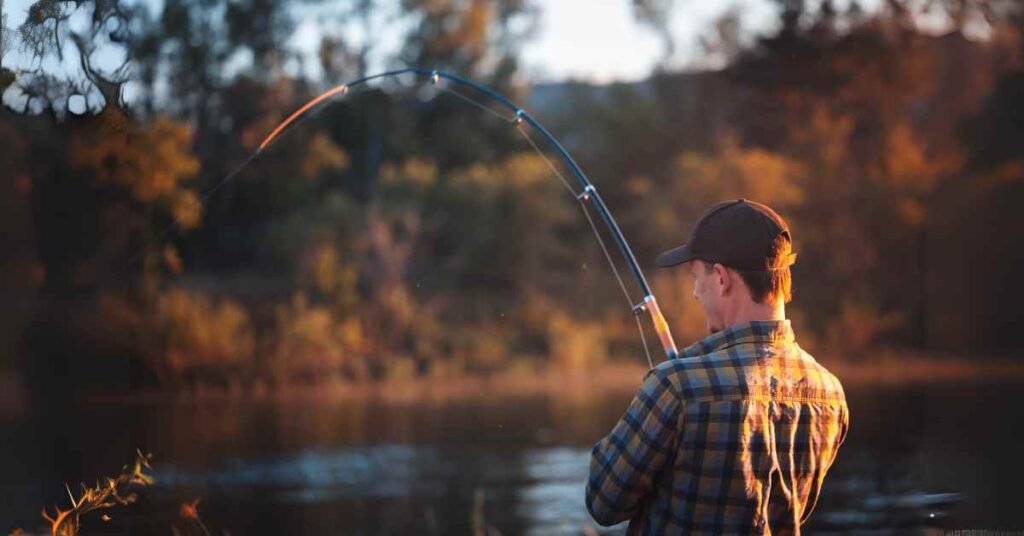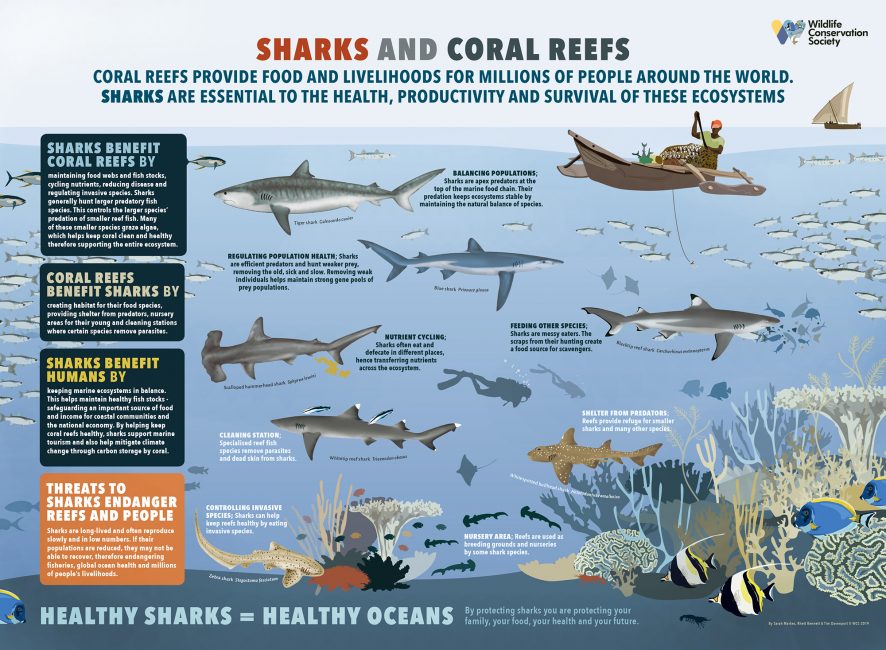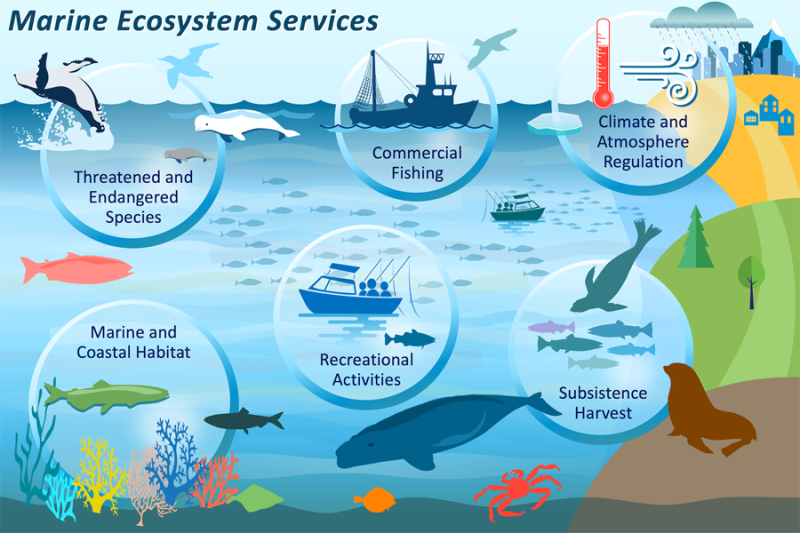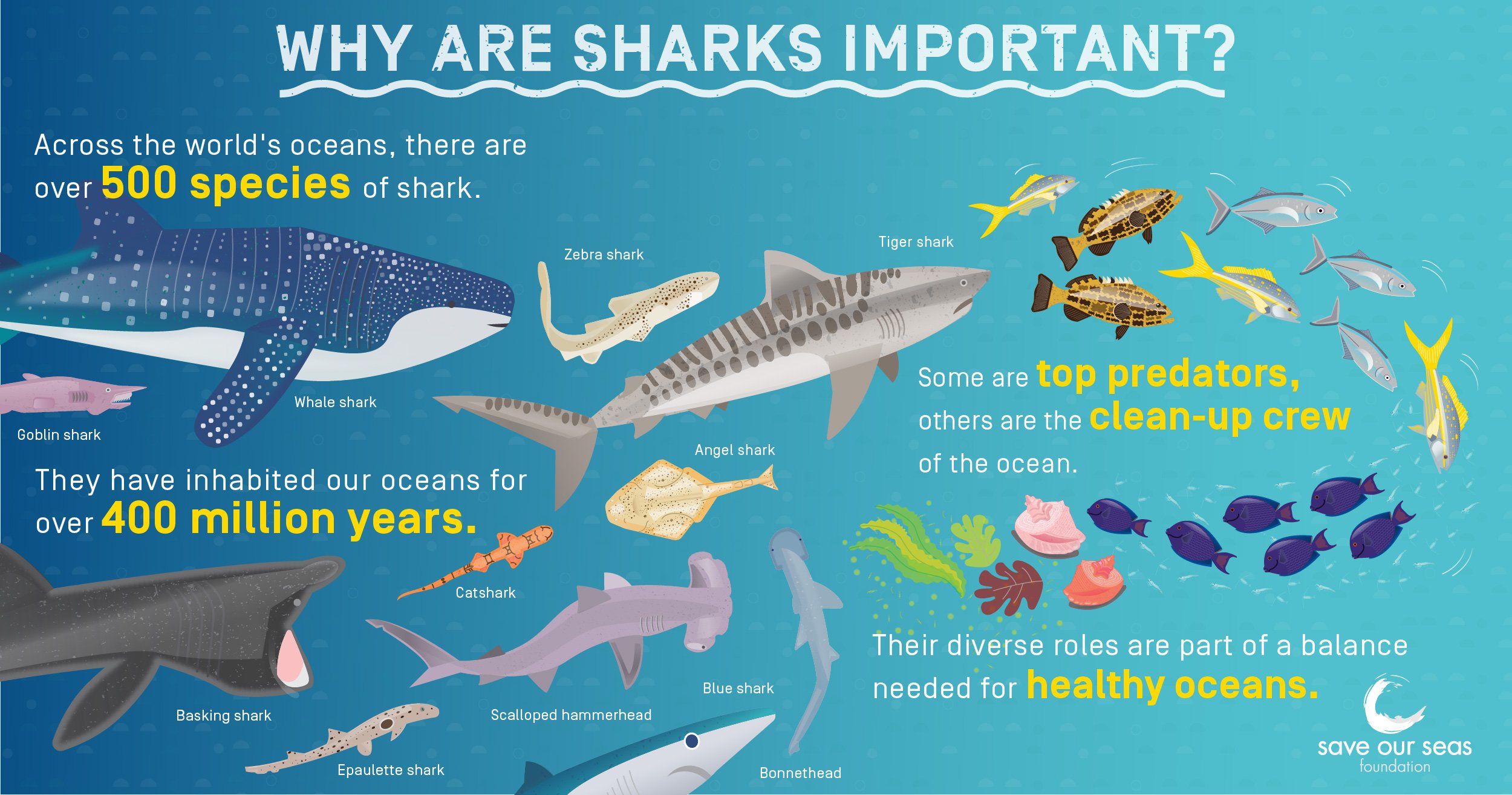Why is Fishing Important to the Environment

Fishing plays a crucial role in balancing marine ecosystems and ensuring the survival of various species. By adhering to sustainable practices, such as avoiding overfishing and minimizing waste, fishing can help preserve marine biodiversity. Additionally, sustainable fishing methods contribute to reducing pollution, conserving energy, and protecting the ozone layer.
This not only benefits the environment but also supports the livelihoods of communities dependent on fishing. Overall, the importance of fishing to the environment lies in its ability to promote conservation efforts and maintain the delicate balance of aquatic ecosystems for future generations.

Credit: blog.wcs.org
Benefits Of Fishing On The Environment
Fishing benefits the environment by reducing pollution, generating less waste, and minimizing energy consumption. Sustainable fishing also helps preserve marine wildlife populations for the future, ensuring a healthy ecosystem.
Reduction Of Pollution
Fishing plays a critical role in reducing pollution. Sustainable fishing generates less waste, minimizes energy consumption, and reduces the use of chemicals that damage the ozone layer. Fishermen who adhere to sustainable fishing practices use eco-friendly gear that doesn’t damage the ocean floor. They also avoid using excess fishing gear and remove any abandoned fishing gear, which can cause harm to marine animals. By reducing pollution, fishing helps maintain a healthy environment for marine life to thrive.
Sustainability And Conservation
Sustainable fishing is crucial for the conservation of marine life. It ensures that fish populations are not depleted beyond their capacity to recover. By practicing sustainable fishing, fishermen can help maintain the ecological balance of the ocean. The Marine Stewardship Council is an organization that sets standards for sustainable fishing practices. They work with fishermen and seafood companies to ensure that fish populations are not depleted, and fishing practices are environmentally friendly. Sustainable fishing also helps to protect endangered species, ensuring that they are not further threatened by overfishing. By practicing sustainable fishing, we can help protect the oceans and ensure that future generations can enjoy the same benefits that we do today.
Impact Of Fishing On Marine Ecosystems
Fishing is crucial to the environment as it supports the economy and provides food. Sustainable fishing practices reduce pollution, energy consumption, and waste, benefiting marine ecosystems. However, overfishing and destructive practices can disrupt the food web and degrade habitats, impacting the ocean’s ability to perform critical ecosystem services.
Overfishing And Habitat Destruction
The practice of overfishing, where fish are harvested at a rate faster than they can reproduce, leads to a significant imbalance in marine ecosystems. This results in a decline in the population of certain fish species, disrupting the food chain and affecting the overall biodiversity. Moreover, overfishing can lead to the collapse of fish stocks, making it difficult for the ecosystem to recover.
Habitat destruction is another detrimental consequence of fishing on marine ecosystems. This can occur through the use of destructive fishing methods such as bottom trawling, which not only captures target fish but also damages the seabed, destroying crucial habitats for marine life.
Ecosystem Services Degradation
Fishing activities can lead to the degradation of ecosystem services essential for the health and balance of marine environments. This includes the disruption of carbon storage, which is vital for climate mitigation. Overfishing and destructive fishing practices undermine the ocean’s capacity to sequester carbon, impacting the overall stability of the climate.
Sustainable Fishing Practices
Fishing is an essential activity that provides food, employment, and economic benefits. However, it is crucial to practice sustainable fishing to ensure the long-term health of our oceans and marine life. Sustainable fishing practices are vital for maintaining healthy fish populations and preserving the marine environment. Let’s explore some key aspects of sustainable fishing practices.
Maximum Sustainable Yield
The concept of maximum sustainable yield (MSY) is essential in sustainable fishing. It refers to the maximum amount of fish that can be harvested without compromising the long-term viability of the fish population. By adhering to MSY principles, fishermen can ensure that fish stocks remain healthy and resilient.
Minimizing Bycatch
Minimizing bycatch is another critical aspect of sustainable fishing. Bycatch refers to the unintentional capture of non-target species, which can have detrimental effects on marine ecosystems. Implementing bycatch reduction techniques such as using selective fishing gear and implementing marine protected areas can help minimize the impact on non-target species.
Preservation Of Marine Habitats
Preserving marine habitats is fundamental to sustainable fishing practices. Healthy marine habitats provide essential breeding, feeding, and nursery grounds for fish and other marine species. By protecting these habitats from destructive fishing practices, such as bottom trawling, we can safeguard the biodiversity and ecological balance of our oceans.
Role Of Fishing In Climate Mitigation
The role of fishing in climate mitigation is crucial for maintaining the balance of our planet’s ecosystems and preserving the environment. Fishing activities play a significant role in carbon storage in oceans and balancing ecosystems, which are essential for climate mitigation.
Carbon Storage In Oceans
Fishing contributes to the storage of carbon in oceans through the maintenance of healthy marine ecosystems. Marine organisms such as phytoplankton and seaweeds absorb and store carbon dioxide from the atmosphere. By preserving these ecosystems, fishing activities indirectly support the sequestration of carbon in oceans, helping to mitigate climate change.
Balancing Ecosystems
Fishing plays a vital role in maintaining the balance of ecosystems by controlling the population of various marine species. Overfishing can disrupt the food web and lead to ecological imbalances. Proper fisheries management and sustainable fishing practices help in regulating the population of fish species, ensuring a harmonious and stable marine environment. This balance is crucial for the oceans’ ability to store carbon, which is essential for climate mitigation.
Fisheries Management
Fisheries management plays a crucial role in preserving the delicate balance of marine ecosystems. It involves the regulation and control of fishing activities to ensure the sustainable utilization of fish stocks and the protection of the environment. Effective management strategies are essential for maintaining healthy fish populations and preserving the biodiversity of aquatic habitats.
Importance Of Regulation
Regulation is a cornerstone of fisheries management, as it helps prevent overfishing and depletion of fish stocks. By implementing and enforcing regulations, authorities can control the size and type of fish harvested, as well as the methods used for fishing. This ensures that the fishing industry operates within sustainable limits, mitigating the negative impact on the environment.
Balancing Harvesting With Reproduction Rates
One of the key objectives of fisheries management is to balance the harvesting of fish with their natural reproduction rates. By monitoring and adjusting fishing quotas in alignment with the reproductive capacity of fish populations, authorities can maintain sustainable levels of exploitation. This approach helps to safeguard the long-term viability of fish stocks and promotes ecological resilience within marine ecosystems.

Credit: www.fisheries.noaa.gov
Responsibility Of Anglers
Anglers hold a crucial responsibility in preserving marine ecosystems through sustainable fishing practices. Fishing plays a vital role in maintaining the balance of aquatic environments, ensuring the future abundance of fish populations and supporting biodiversity. By practicing responsible angling, individuals contribute to the overall health and sustainability of our oceans and waterways.
Fishing is not just about catching fish for food or sport. It also plays a vital role in maintaining the ecological balance of aquatic environments. However, this responsibility falls not only on the government and conservation organizations but also on the anglers themselves. As a fisherman, it is your duty to protect the environment and ensure the sustainability of fish populations.
Preservation Of Aquatic Environments
Preserving aquatic environments is crucial for maintaining a healthy ecosystem. Anglers can play a significant role in this effort by avoiding overfishing and practicing catch-and-release techniques. By limiting their catch and releasing fish that are not within legal size limits, anglers can ensure that fish populations remain stable. Additionally, anglers should also dispose of their fishing equipment and waste properly to avoid polluting the environment.
Enhancing Biodiversity
Anglers can also help enhance biodiversity in aquatic environments. By targeting non-native and invasive species, anglers can prevent these species from dominating and outcompeting native species. This will help maintain the natural balance of aquatic ecosystems and ensure that native species thrive. In conclusion, the responsibility of anglers is crucial for the preservation of aquatic environments and the sustainability of fish populations. By practicing catch-and-release techniques, avoiding overfishing, and targeting invasive species, anglers can play a significant role in maintaining a healthy ecosystem.

Credit: saveourseas.com
Frequently Asked Questions
What Are The Benefits Of Fishing On The Environment?
Fishing benefits the environment by reducing pollution, waste, energy consumption, and harmful chemical use. Sustainable fishing helps maintain wildlife populations and marine ecosystems for the future.
Why Are Fish Good For The Environment?
Fish are good for the environment because they reduce pollution, generate less waste, and have a low carbon footprint.
Why Are Fish So Important?
Fish are important for the environment as they reduce pollution, generate less waste, and have a low carbon footprint.
How Does Fishing Change The Environment?
Fishing can lead to overfishing and habitat degradation, disrupting ecosystems and endangering marine life.
Conclusion
Fishing plays a vital role in maintaining a healthy environment by reducing pollution and waste. Sustainable fishing practices help preserve marine ecosystems and ensure the survival of fish populations for the future. By choosing responsible fishing methods, we can protect our oceans and the diverse species that call them home.
